Whoever comes to Arno Nickel plays chess. Or would like to learn. Or has discovered the store in passing and thinks to himself “Ah! A whole store just for …”.
Exactly. Here at 28 Sophie-Charlotten-Strasse, there’s an entire store dedicated just to this one game. But after all, it’s not just any game, it’s the most royal of all games, the most popular board game in Europe, the only board game that is considered a sport, known and played all over the world.
Accordingly, Lasker’s Schachhandel, as Arno Nickel’s store is officially called, is known far beyond the borders of Berlin, named after Emanuel Lasker, the only German chess world champion so far. Because it is the only remaining chess specialty store in Berlin. So it doesn’t matter at all that the store itself is rather hidden and unsuspected between car dealerships and supermarket parking lots on the first floor of an old apartment building and is barely four meters wide – the connoisseurs of the subject also know the store. And find it. And travel from all over the world if necessary.
However, anyone who enters the small store without a clue may be briefly surprised that the left side of the room is completely filled to the ceiling with bookshelves; it looks more like a bookstore there. And that’s basically what it is: because the origin of Nickel’s business lies in Edition Marco, a publishing house he founded in 1983 without further ado in order to publish his now popular and sought-after chess calendar himself. At the time, none of the established publishers wanted to do that. Nickel, however, trusted his concept and in months of work, with a lot of editorial skill and even more heart and soul, developed the yearbook that is so popular today. In addition to the obligatory calendar, it contains year after year a rich collection of entertaining and interesting additional information, backgrounds, anecdotes and dates for chess fans.
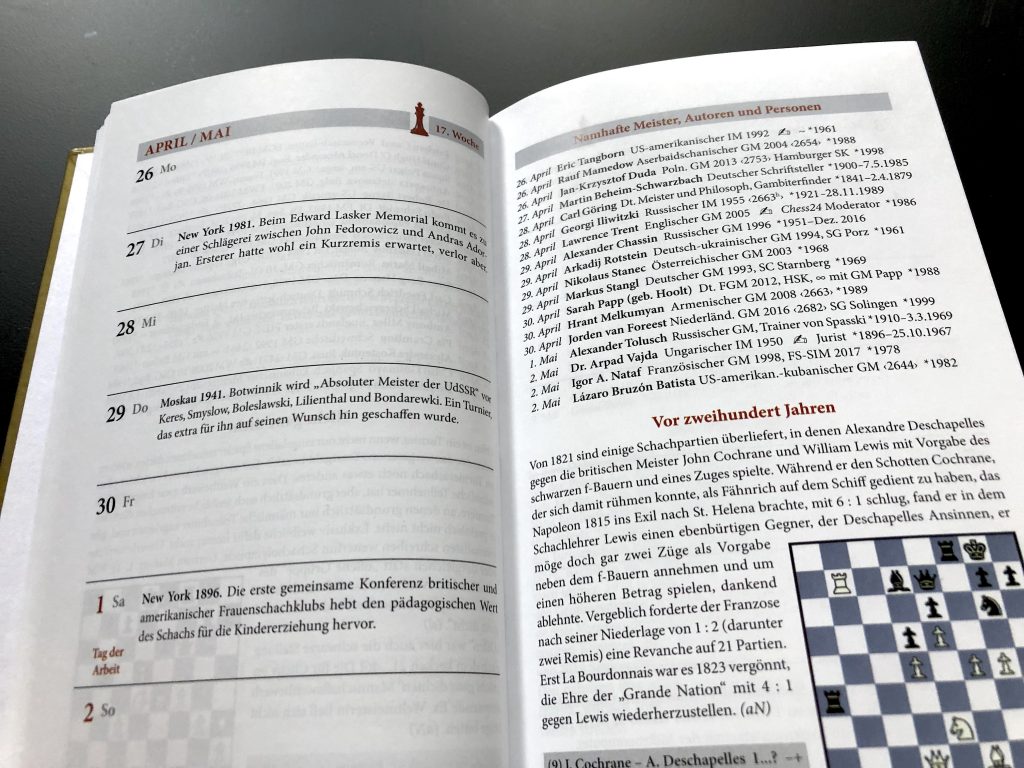
At that time, he had produced the first calendar virtually with a typewriter. Now the 40th edition has appeared. And it promptly caused a furor in the chess community: because in it Nickel announces his departure. The correspondence chess grandmaster and three-time Olympic champion in this discipline will soon be 70 years old and wants to retire. Not chess, of course, but business. And they were going well. This series on Netflix, “The Queens Gambit,” has triggered a new wave of chess enthusiasm, and many people have started playing chess as a result, Nickel knows.
Customers who simply want to buy a chess set come in every day. About half of them play in a club (there are over 60 of them in Berlin alone) or play chess as a hobby. The other half are beginners, occasional players who want playing material: Boards and pieces. On some days he has ten customers, sometimes only two, “but some leave real money: Today he sold chess pieces for 400 euros. Of course, these were special pieces, the kind that are more in demand by enthusiasts and collectors.
The wealth of variants of the old board game seems almost endless. There really is something for every taste: from very simple figures made of glass or metal, cool and minimalist design, to elaborate and detailed elaborated as for example the “Chess of the Gods”, a high quality rarity with artistically designed porcelain figures and a chess board made of cast marble. For such a piece of jewelry you can even pay up to a thousand euros if you want … Chess clubs and schools, on the other hand, buy simple tournament folding boards in the size 50 by 50 centimeters with plastic pieces from him.
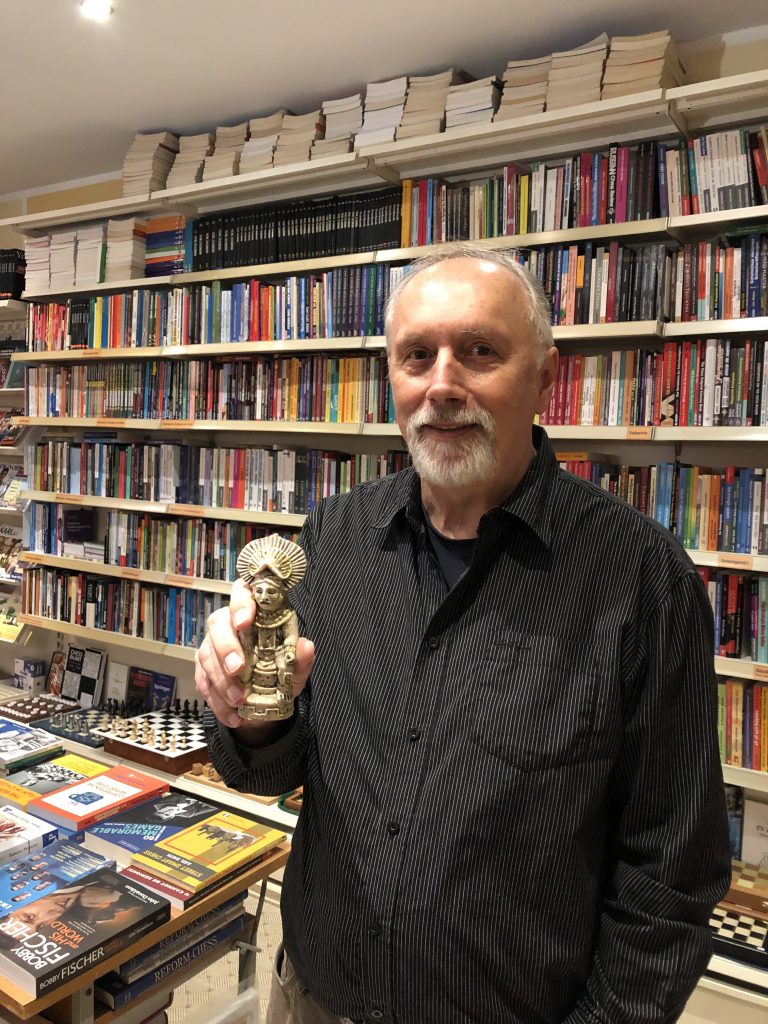
“You can almost say that chess is a cosmos of its own, as you can see from the fact that there are libraries that have well over a hundred thousand chess books.” There is a large chess collection in Den Haag, for example, and the world’s largest, with over two hundred thousand antiquarian titles, in Cleveland, Nickel says.
On his own shelves there are books about the history of chess, chess composition, chess studies, chess tactics, biographies with historical backgrounds, game collections of famous players, training literature, but also works of fiction, e.g. “Ein Kampf” by Patrick Süskind or Ulrich Geilmann with “Petersburger Gambit”, a detective story in the chess milieu – also for non-chess players, as the blurb reveals. “The special literature is really only something for club players.” With his Edition Marco Nickel himself publishes sophisticated literature, has published articles on computer chess, freestyle chess, correspondence chess and on historical topics in various trade journals.
And how did he himself get into chess?
“My older brother taught me when I was 12 years old. I was about to give up playing, then I beat him for the first time.” With that, his passion for the game was awakened and remained, accompanying him continuously, even if he initially took a different path professionally: The Flensburg native came to Berlin to study history and politics at the Otto Suhr Institute of Freie Universität. After a phase of orientation he finally decided to earn his money with chess rather than to pursue his scientific career. In general, freedom was always more important to him, he could not have imagined an office job. And it was never important to him to do big business, but to live well.
He came to correspondence chess during his youth at boarding school: there were no opponents for him there, so he started correspondence chess without further ado and stuck with it. The beauty of it is that you don’t play under time pressure, but can take days and even use all available tools to decide on the next move. “It’s a special discipline, the marathon in a way.” By the way, this is how the GDR Olympic team managed to win a medal in correspondence chess as recently as 1993, he knows: The game just lasted so long, and even though the Wall fell, the match wasn’t stopped.
Inspired by the concept of Viennese cafés, he actually had the dream of opening a chess café. However, since no one wanted to share this vision, he decided to leave it alone: He didn’t want to take the financial risk alone.
And now he wants to go all the way. He wants to retire from the business and enjoy his retirement. Playing chess with friends in the pub in a relaxed atmosphere, without any sporting ambitions. And occasionally continue to take part in senior world championships – he likes to combine that with travel and vacation, once or twice a year.
And the store? It would be a great pity to lose such a special highlight in the neighborhood. But Arno Nickel is confident that he will find a successor: The store is well established and, after all, the only one in Berlin. But with the chess calendar it could become more difficult … Because whether someone else will be ready to put so much time, idealism and commitment into it as Arno Nickel? For the chess community this remains to be hoped.
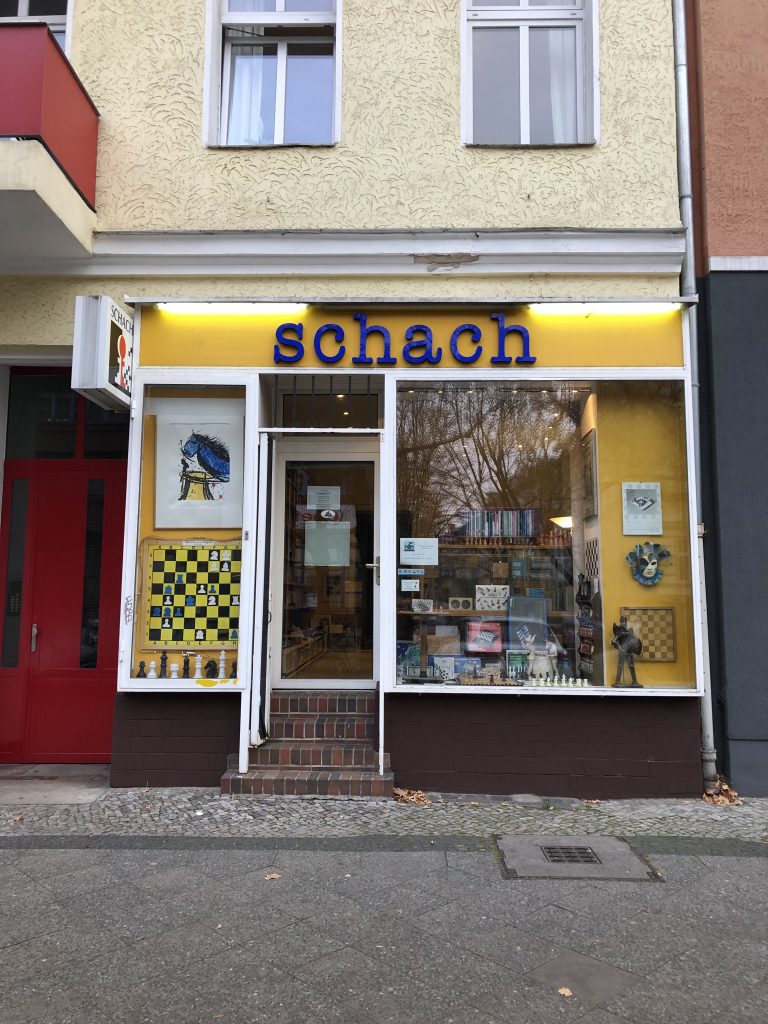
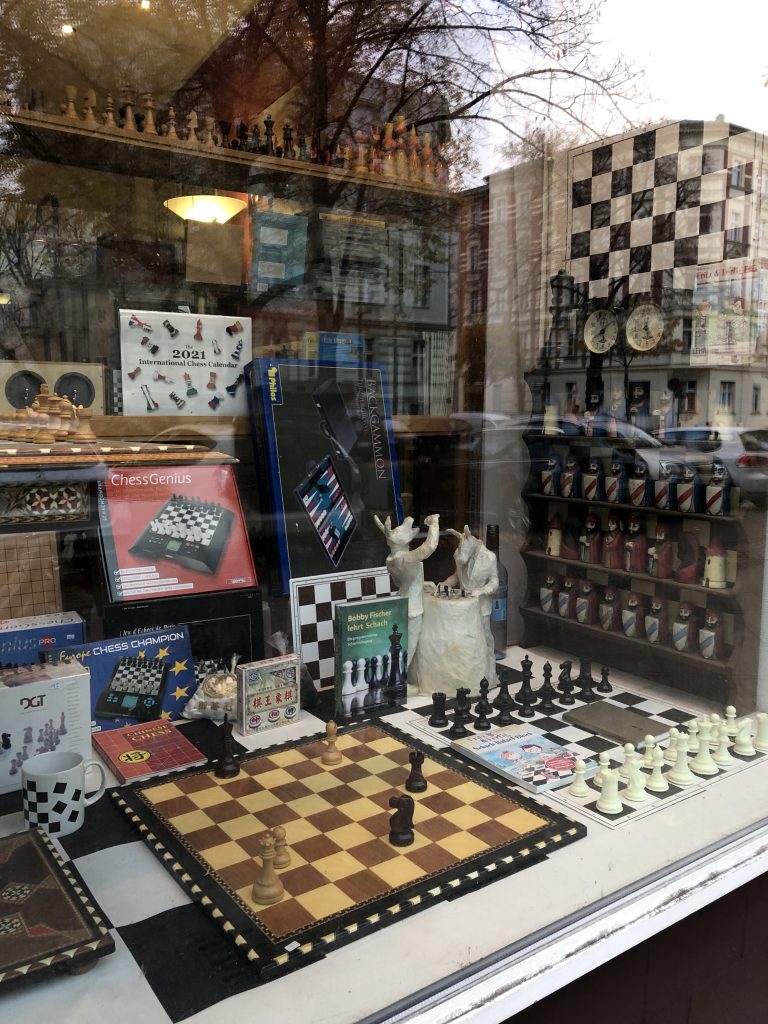
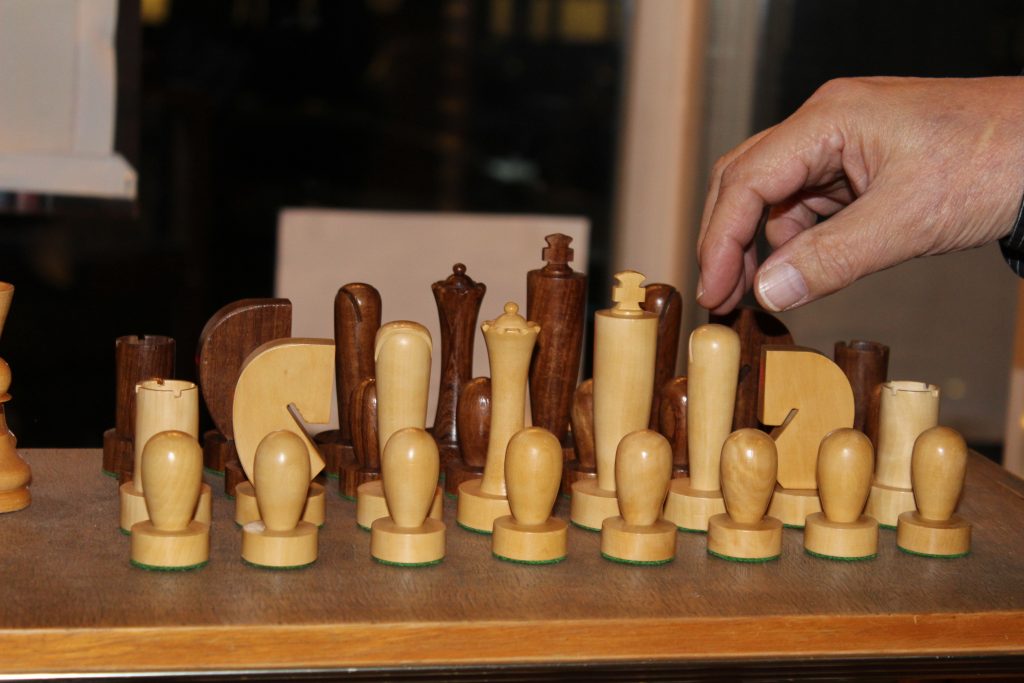
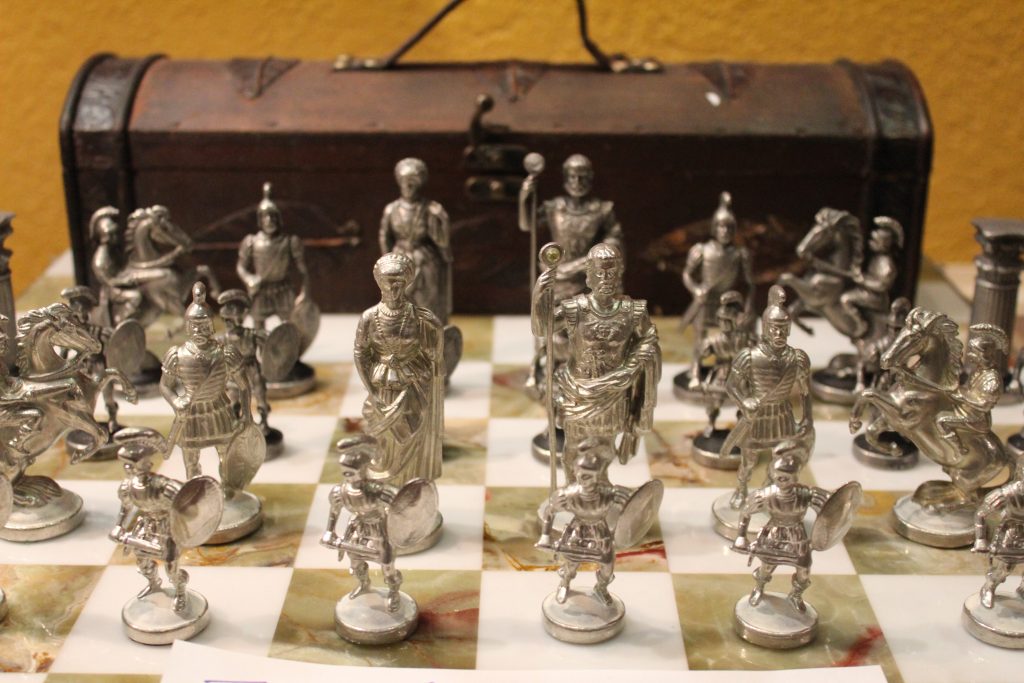
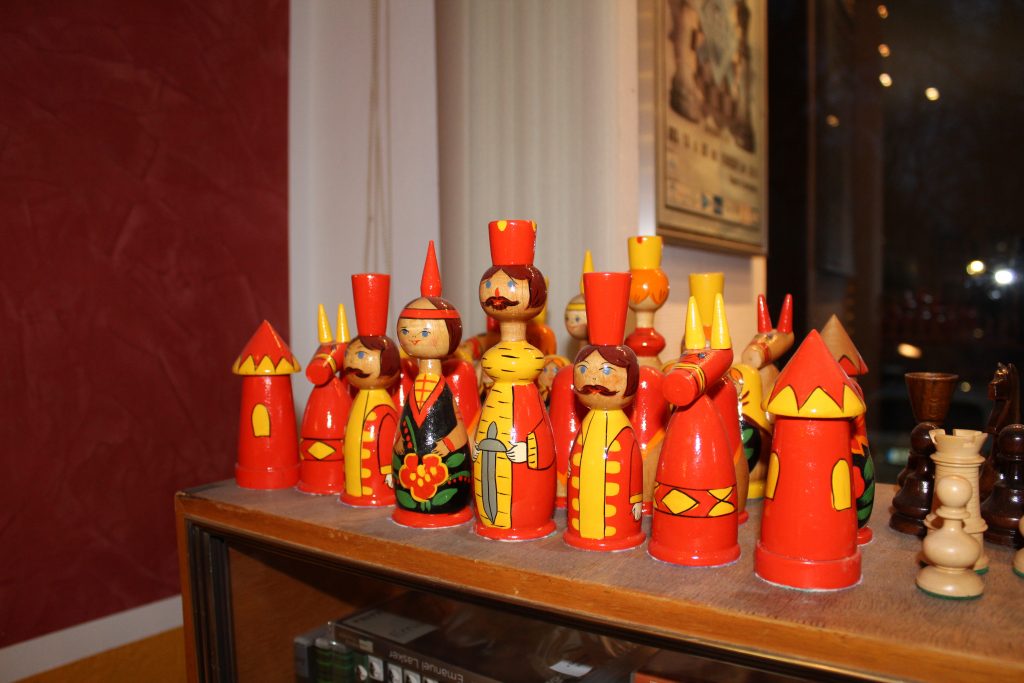
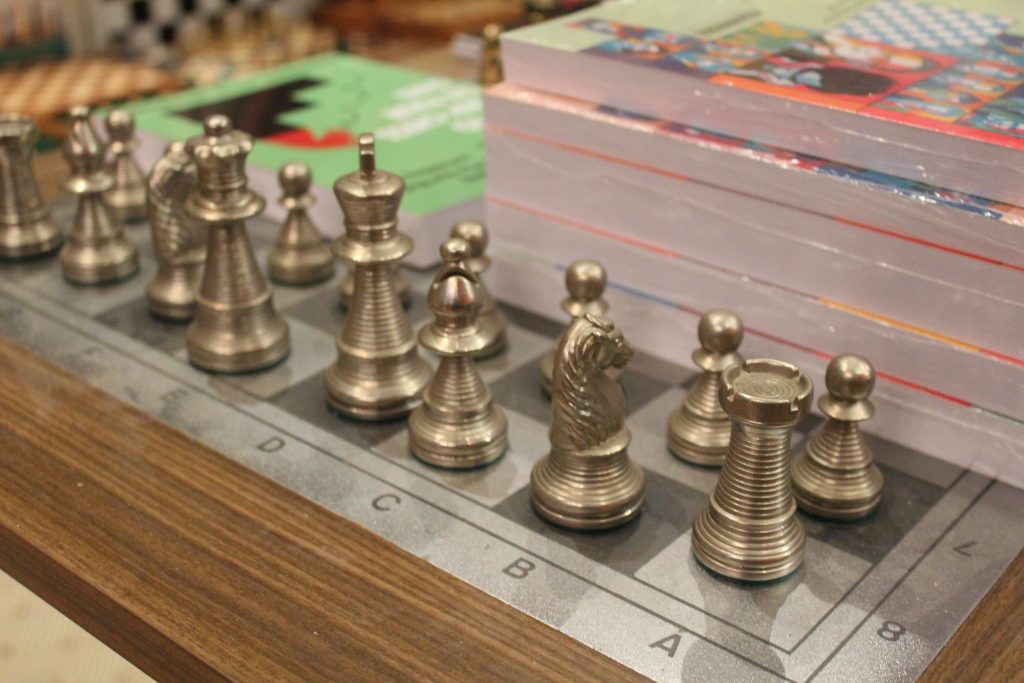
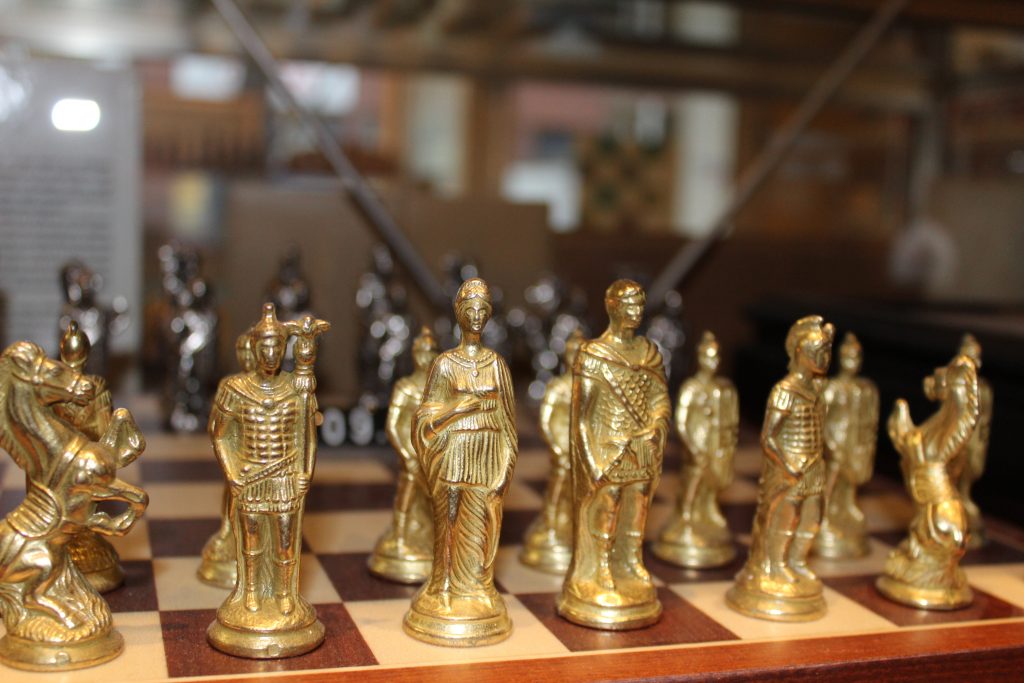
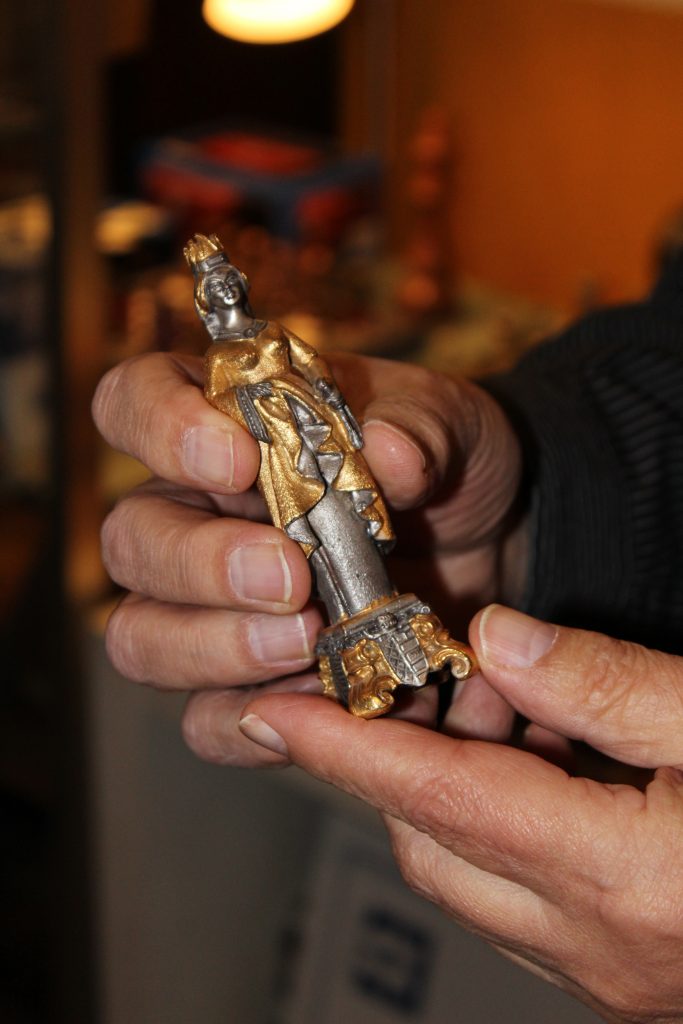
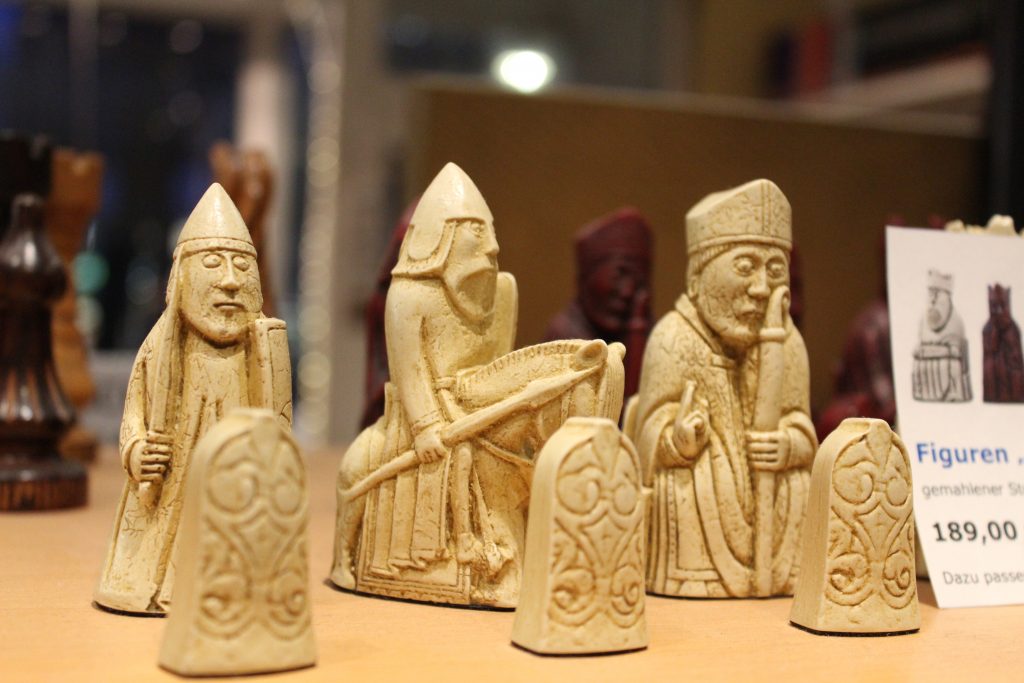
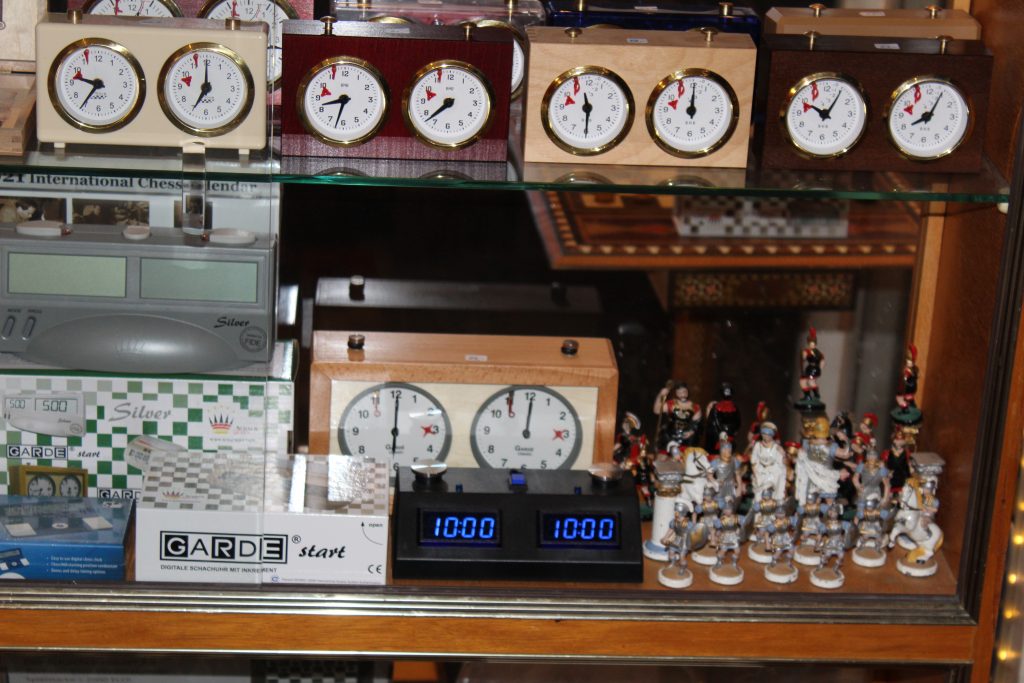
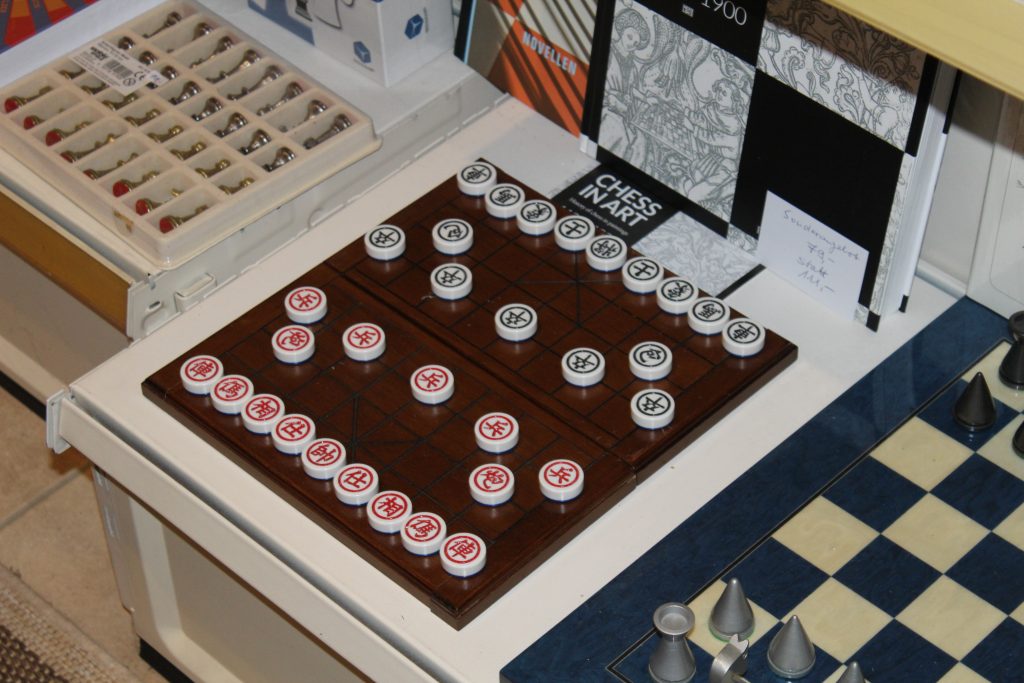
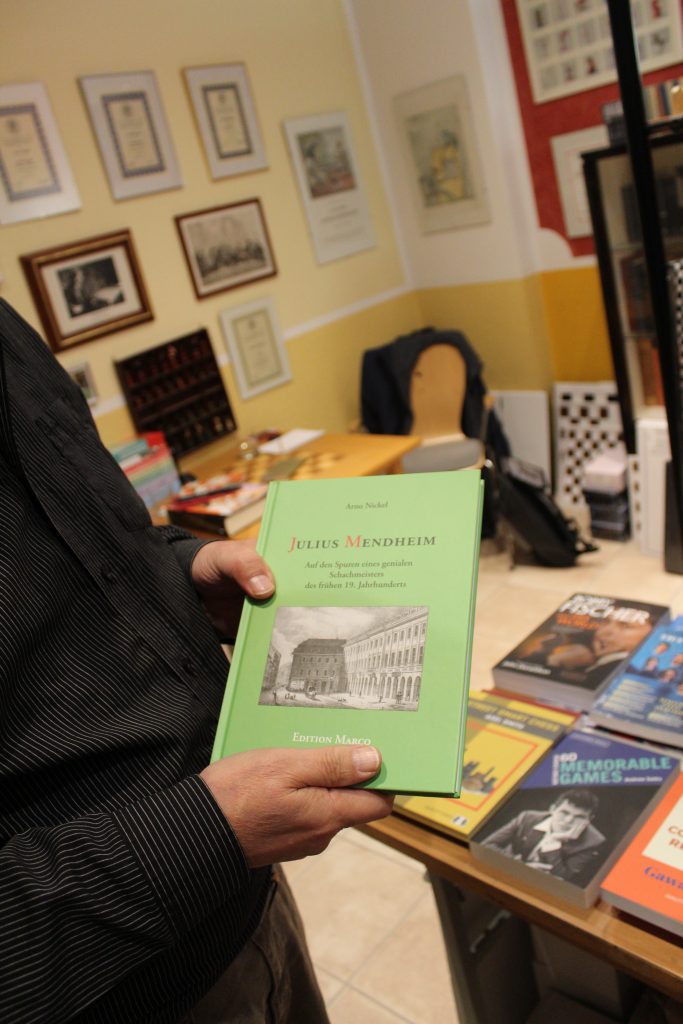
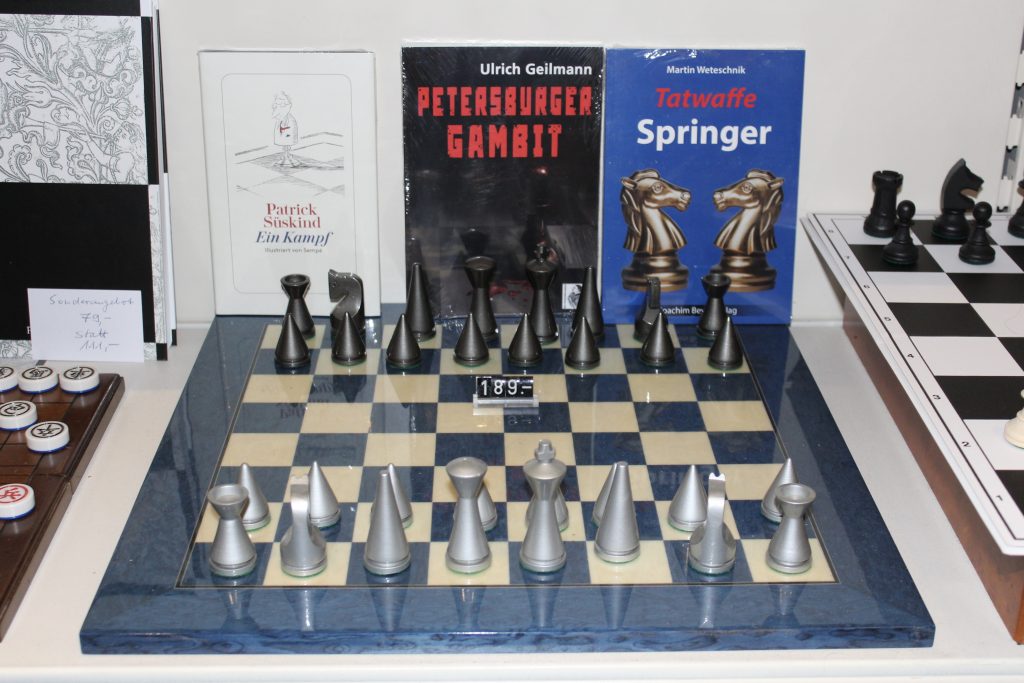
Lasker’s – der Schachladen
Sophie-Charlotten-Str. 28, 14059 Berlin
https://www.edition-marco-shop.de